Hey there! If you've ever had to navigate the complexities of a lease agreement, you know how crucial it is to stay on top of your start dates. Sometimes unexpected delays can throw a wrench in your plans, and that's where a well-crafted letter comes in handy. In this article, we'll explore how to communicate effectively with your landlord about a delayed lease start date, ensuring both clarity and professionalism in your correspondence. Curious to learn more about crafting the perfect letter? Let's dive in!

Clear subject line
Delayed Lease Start Date Notification: Important Update for Tenants The delayed lease start date for the property located at 123 Maple Street has been confirmed for November 15, 2023, instead of the originally scheduled date of November 1, 2023. Tenants should prepare for the necessary adjustments regarding moving arrangements and utility setups during this two-week delay. The property management team will provide additional communication outlining steps for a smooth transition, and tenants are encouraged to contact the office if they have any questions or require further assistance.
Polite and professional tone
The delayed start of a residential lease can cause inconvenience for both landlords and tenants. A formal communication regarding this matter might include the specifics such as new start dates and reasons for the delay which can include unforeseen circumstances like repair needs or changes in tenant occupancy. It is important to mention the potential implications for rental commitments, along with contact information for further discussion. Clear understanding of revised timelines ensures both parties maintain a professional relationship despite the adjustment.
Explanation of delay
The unexpected delay in the lease start date stems from extensive renovations needed for the apartment located on Main Street, an area known for its vibrant community and historical significance. These renovations, aiming to enhance modern amenities while preserving the property's classic architecture, were initially projected to complete by September 15, 2023. However, unforeseen issues surfaced, including outdated electrical wiring and plumbing, requiring additional contractor time. The new anticipated start date for the lease is now October 1, 2023, ensuring all improvements meet safety codes and provide tenants with a comfortable living experience.
Proposed new start date
The delayed lease start date can significantly impact both tenants and landlords, requiring clear communication. The proposed new start date should take into consideration factors such as the reason for the delay, transitional arrangements, and the specific terms outlined in the lease agreement. For instance, a tenant may face difficulties if they must move into a property in a different month than originally planned, particularly in high-demand locations like New York City. Costs related to moving, storage, or overlapping housing expenses may arise. Furthermore, landlords must ensure compliance with local laws and regulations regarding lease modifications, as varying jurisdictions may have specific requirements. Effective dialogue and documentation will provide both parties with a clear understanding of responsibilities and expectations surrounding the new start date, ensuring a smoother transition.
Contact information for further discussion
Delays in lease agreements can significantly impact tenants and landlords alike. When the start date of a lease, typically defined in legal documents, is postponed, communication becomes essential for clarity. Key contact points may include property management staff, landlords, or real estate agents. For instance, if the lease is associated with a rental property located in downtown Chicago, proactive outreach is vital to prevent misunderstandings regarding the new proposed date. Additionally, having updated contact information, such as email addresses or phone numbers, enhances responsiveness and creates a smoother transition for all involved parties, facilitating further discussions surrounding possible adjustments to move-in conditions.

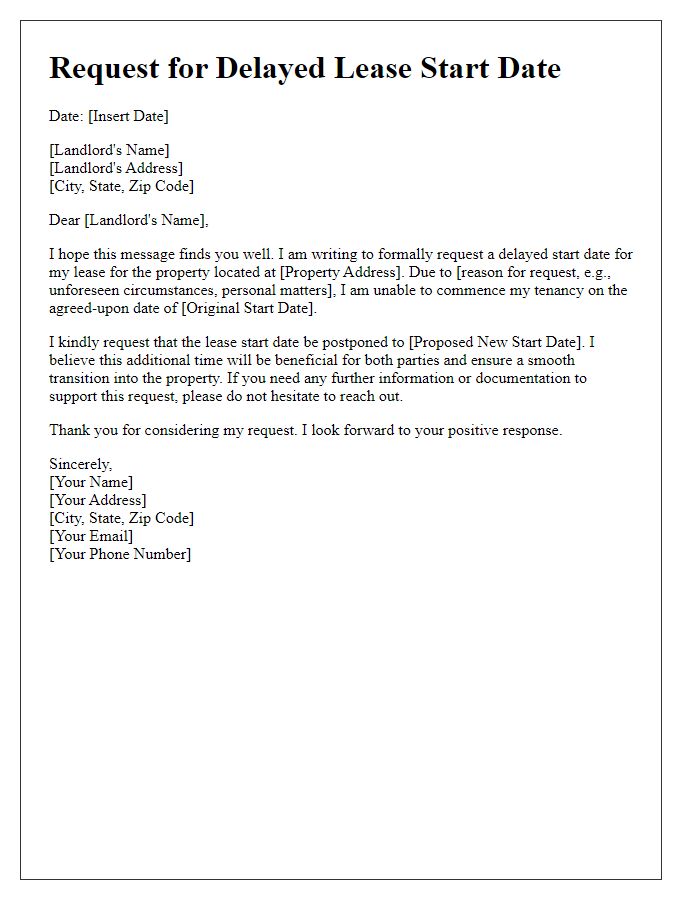
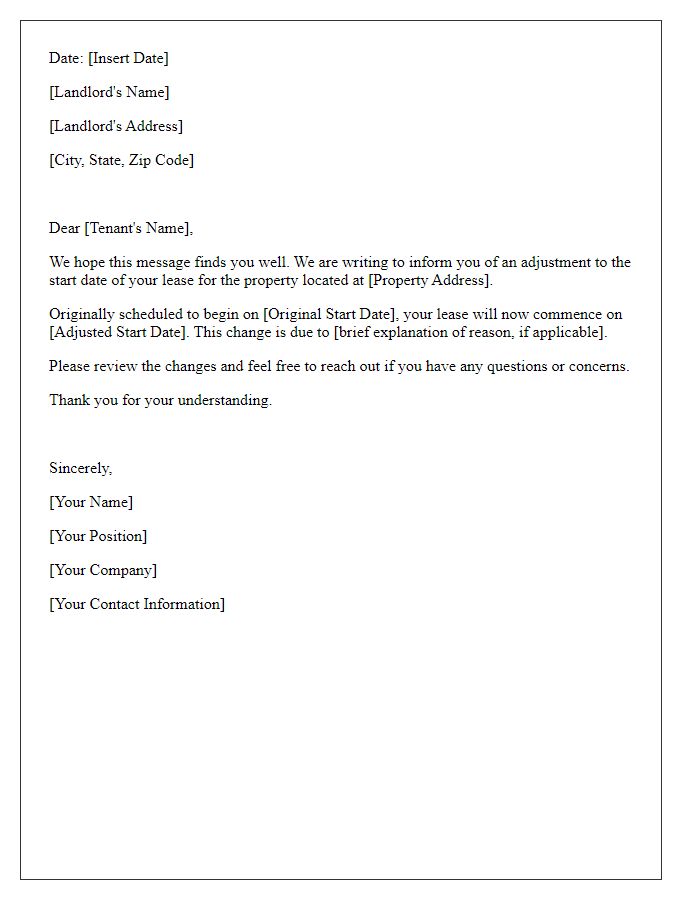
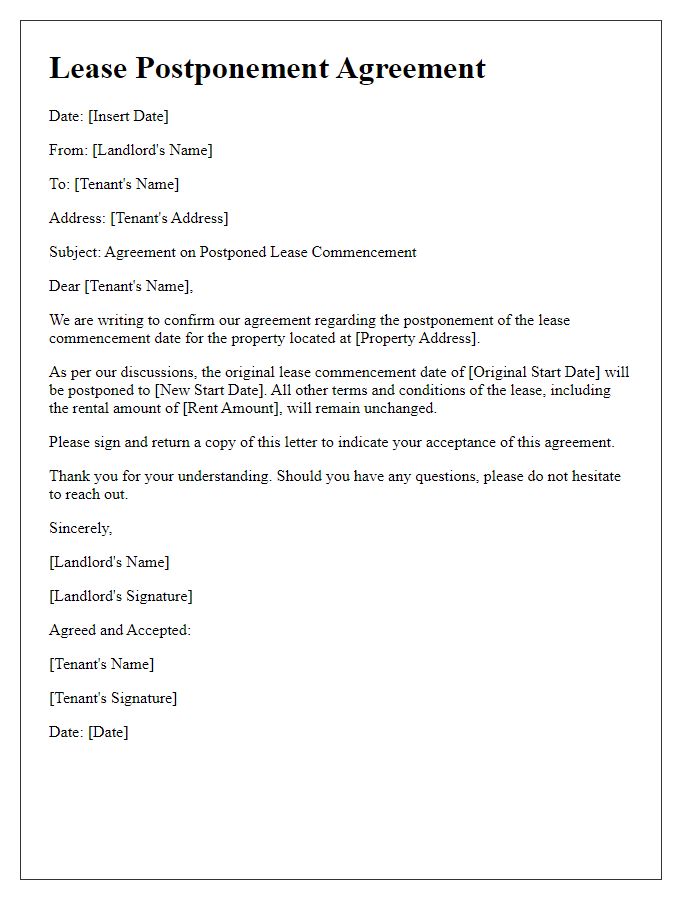
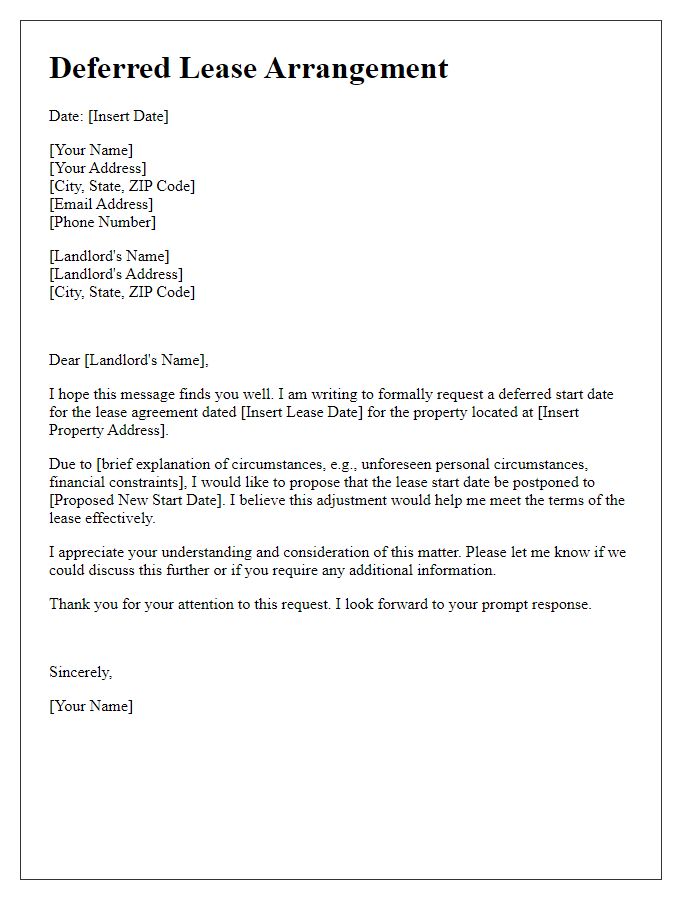
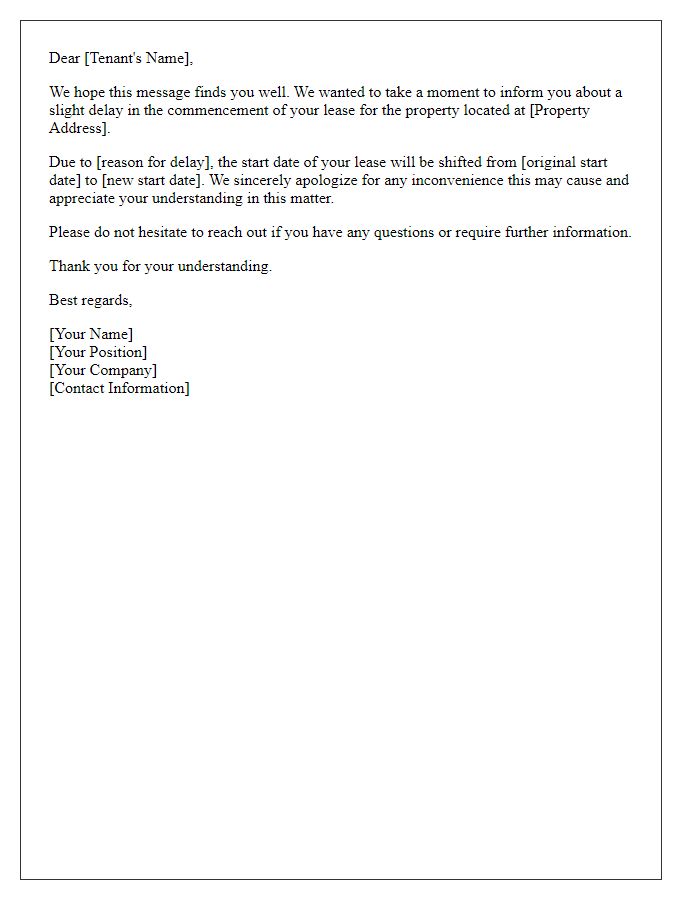
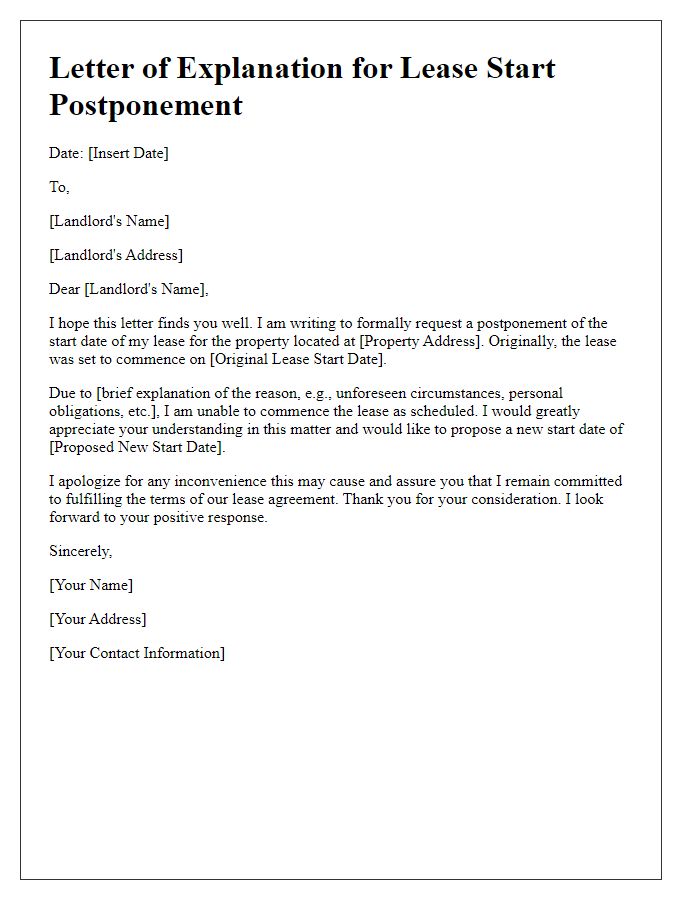
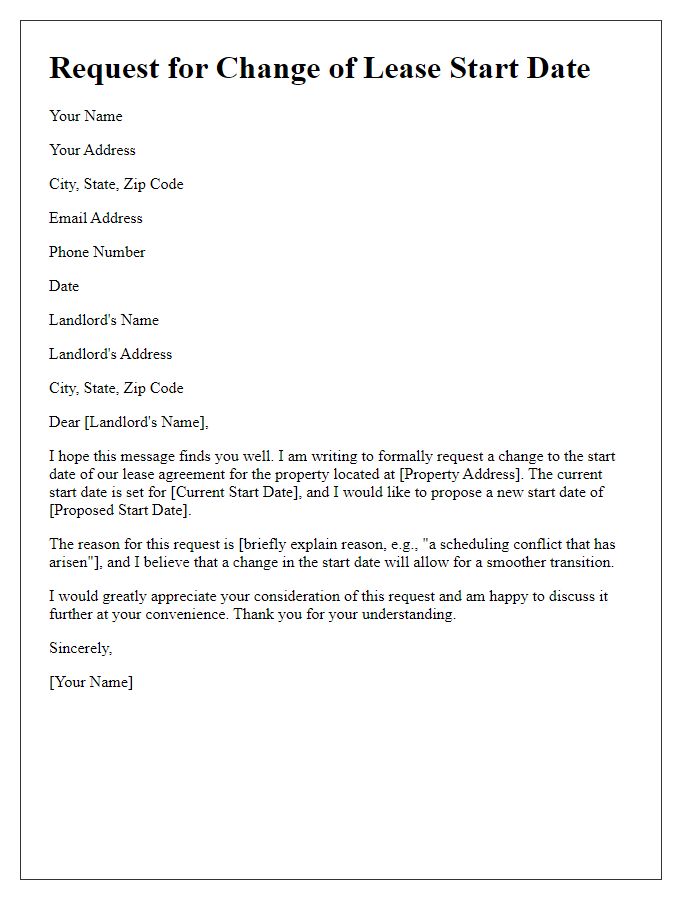
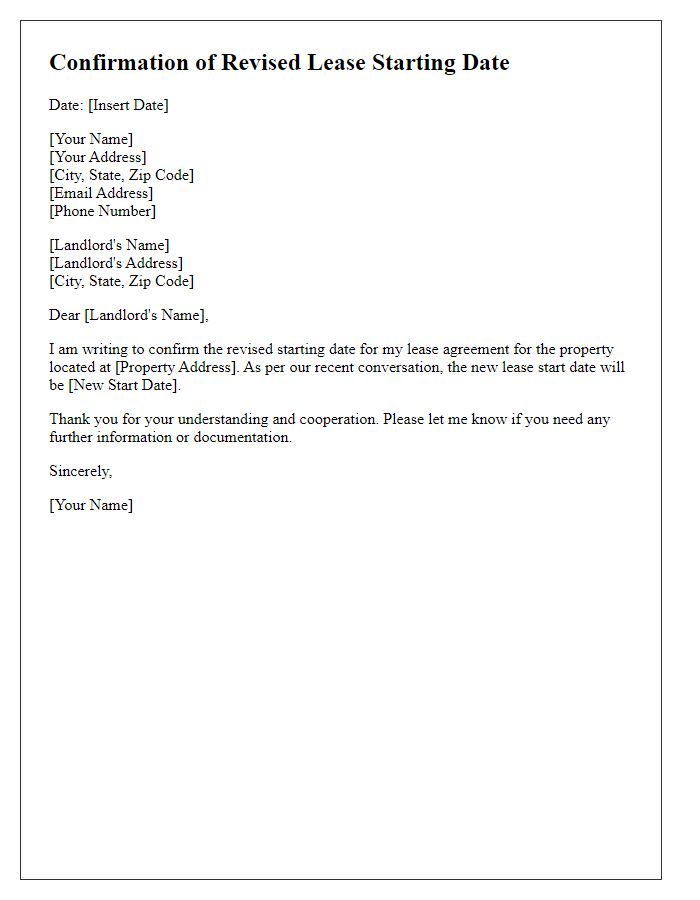
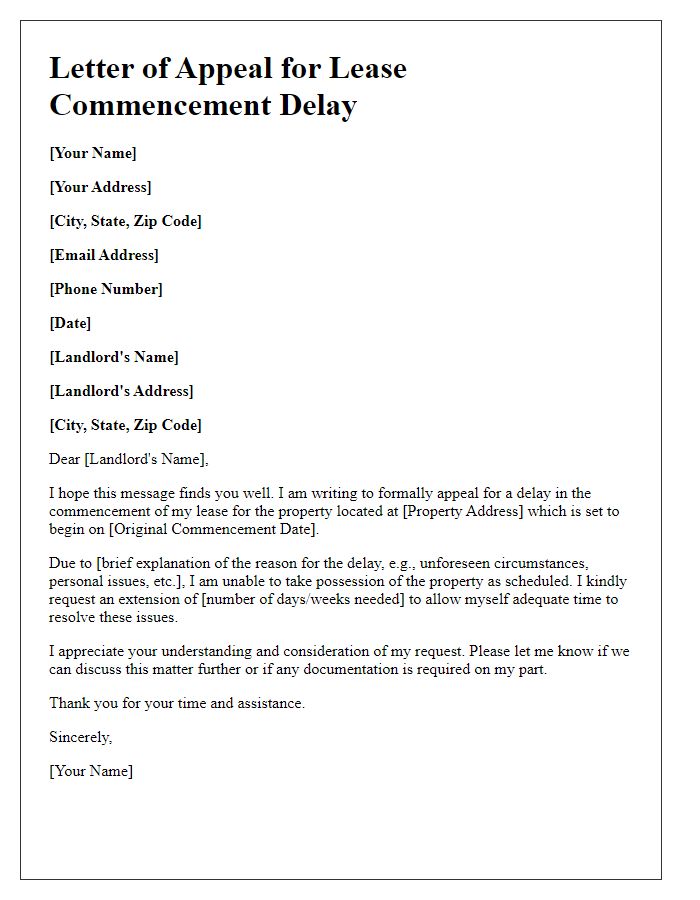
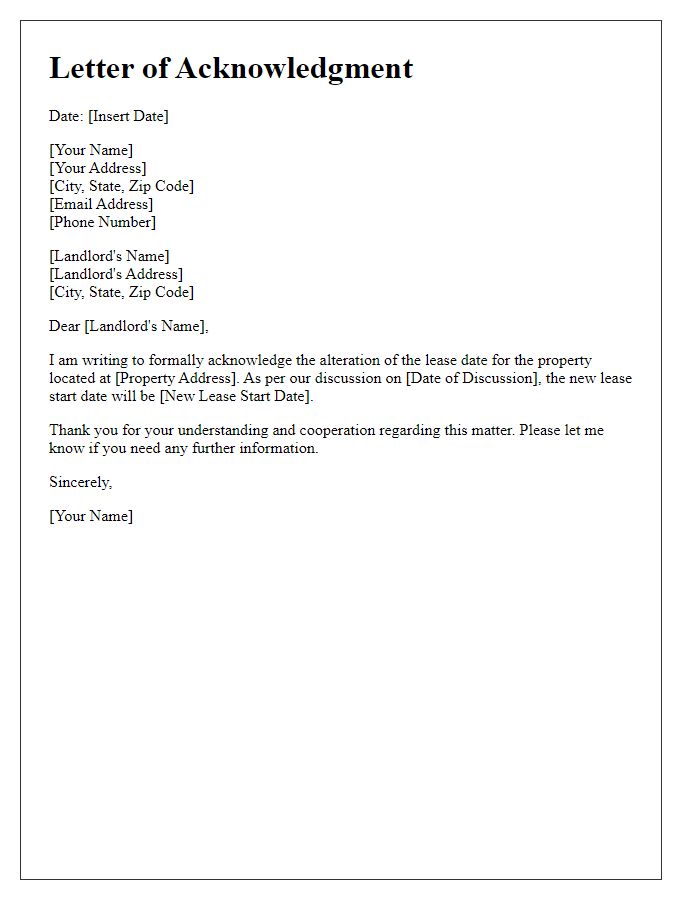


Comments